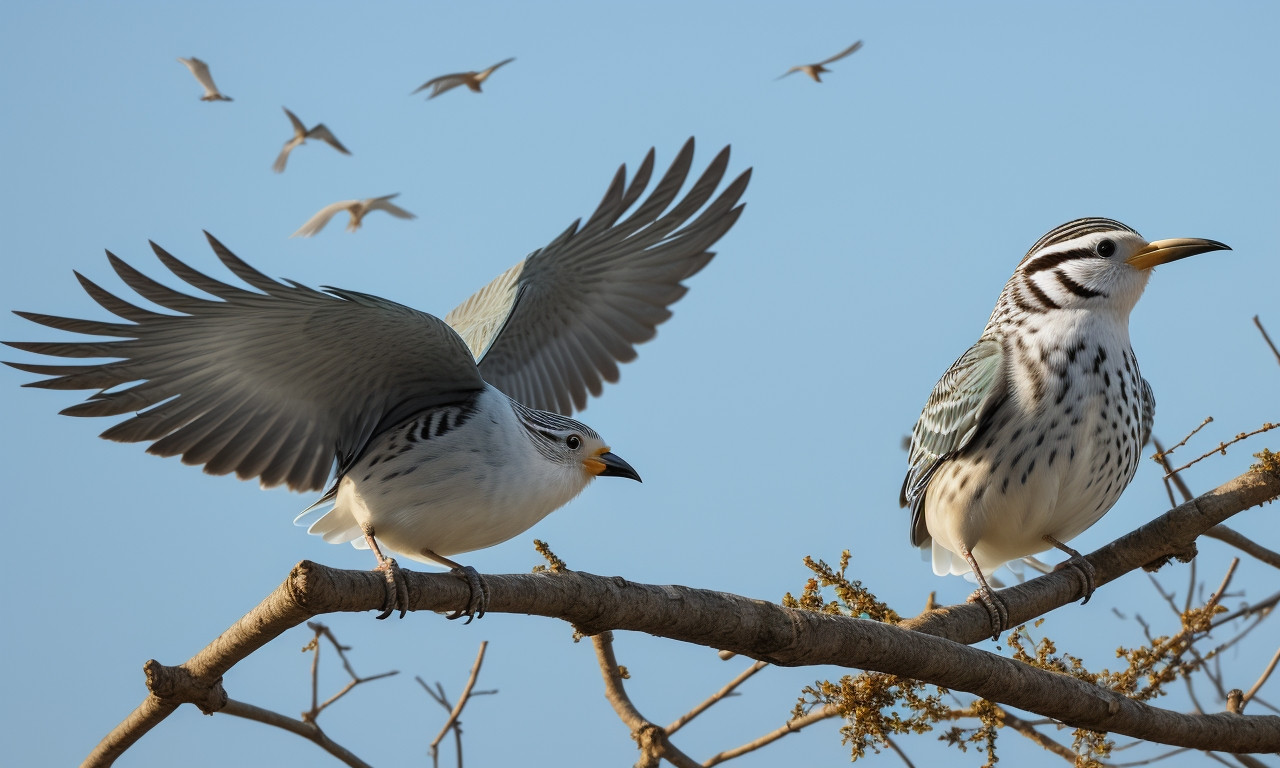The soft first light of dawn gently spills over the horizon, painting the sky with hues of pink and gold. The world is quiet, serene, and peaceful. Yet, as the light grows, an orchestra of chirps, tweets, and trills breaks the silence, growing into a symphony that heralds the start of a new day. For those who have wondered why birds are especially loud during the early hours, this article explores the fascinating reasons behind nature’s own alarm clock.
Birds are the soundtrack of the morning, filling the air with a mixture of calls and songs just as the sun rises. Their vocal expressions are not just a casual activity but a crucial part of their daily lives, influenced by a combination of biological and environmental factors. From staking claim to a territory to attracting mates and signaling the new day, the chorus is an essential communication tool in the avian world.
Let’s dive into the world of birds and discover the secrets behind their morning melodies.
Related article; The Camp Robber Bird
The Early Bird: Biological Rhythms and Morning Songs
Circadian Rhythms: An Internal Clock
Much like humans, birds have internal biological clocks known as circadian rhythms which dictate their daily activities, including when they sing. These rhythms are finely tuned to the natural cycle of daylight and darkness. As daylight approaches, the increase in light intensity triggers a response in the birds’ brains, prompting them to start their vocal performances.
Related article; Black Palm Cockatoo
Hormonal Influence on Birdsong
The role of hormones, particularly testosterone, can’t be understated in the dawn chorus. As the breeding season approaches, hormonal changes in birds lead to an upsurge in their singing, especially among males. This is because the elevated hormone levels enhance the libido and the drive to establish territories and attract mates.
Related article; The Most Amazing Birds in Virginia!
The Auditory Landscape of Morning
Acoustic Transmission at Dawn
During early morning hours, the acoustic transmission is at its best. The lower wind speeds and the stable air temperature create an environment where sound travels more effectively. The calmness allows bird calls to carry farther, ensuring that their messages are heard over a larger distance.
Related article; Amazing Green Birds
This enhanced sound transmission is particularly beneficial for birds living in dense habitats, such as forests or thickets, where visibility is limited. Their calls can pierce through the foliage, undiluted by the noise of day-to-day activities that haven’t begun yet.
Related article; huitlacoche bird habitat
The Social Network of Feathers
Territorial Declarations and Warnings
Birdsong is a powerful tool for marking and defending territory. The early morning chorus is a time when birds make their presence known, warning potential rivals that they’re overstepping into occupied space. By establishing their dominance before other creatures are awake, they have the advantage, ensuring that their area is respected throughout the day.
Related article; texas roadhouse early bird menu
Mate Attraction and Reproductive Success
Along with the display of colorful plumage, song is a critical aspect of mate attraction. The morning’s acoustics play a key role, allowing those birds with the most powerful and intricate songs to showcase their genetic fitness. Fiercely singing at dawn demonstrates the vigor of the male bird, essentially advertising his suitability as a mate and increasing his chances of reproductive success.
Related article; bird bucks white owl
The Impact of Seasons and Weather on Birdsong
Seasonal Variations in Singing Behavior
The intensity and frequency of birds singing in the morning are heavily influenced by the seasons. During the breeding season, the chorus is more pronounced. However, as the season ends, the fervor of the morning song recedes, mirroring the shift in the birds’ priorities.
Related article; Where to buy tweety bird ice cream in the USA
Weather Patterns and Their Effects
Weather plays a significant role in bird vocalizations. On clear mornings, birds are likely to start their songs earlier and continue for longer periods compared to overcast conditions. The presence of rain, fog, or other atmospheric disturbances can suppress the morning chorus, as sounds are muffled and less effective for communication.
The Symphony of Species: A Chorus Composed of Many
Bird species have different niches and roles within their ecosystems, and their songs in the morning reflect this diversity. Some birds, such as robins and blackbirds, are among the first to start the chorus. Their clear, melodious songs are designed to cut through the silence of the pre-dawn stillness.
As the morning progresses, other species join in, each with their unique calls and rhythms. The dynamic interplay of various species creates a cascade effect, forming a complete ensemble that’s as much a part of daybreak as the rising of the sun.
Listening to Nature’s Alarm Clock: The Human Connection
The morning chorus is not just an auditory feast for the birds—it has a profound effect on people as well. The dawn songs often signify a fresh start, a reminder of nature’s cycles, and our own place within the natural world.
For bird enthusiasts and researchers, the morning chorus provides valuable insights into avian behavior, population dynamics, and ecosystem health. It can also be a source of inspiration and well-being for individuals, offering a moment of tranquility in an otherwise bustling life.
Conserving the Chorus: The Importance of Habitat Protection
The continuation of nature’s morning melody relies heavily on the conservation of habitats. Urbanization, deforestation, and climate change pose significant threats to bird populations and the integrity of their natural environments.
Efforts to protect and restore bird habitats are crucial not only for the survival of bird species but also for the preservation of the magical experience that is the morning chorus. By fostering a deep appreciation for these natural wonders, we can ensure that future generations will wake to the sound of birds greeting the dawn.
Final Thoughts: Embracing the Dawn Chorus
The question of why birds are so loud in the morning has unraveled a world of complexity and beauty. The dawn chorus is a multifaceted phenomenon, driven by intricate biological, environmental, and social factors. Understanding the roles that circadian rhythms, acoustic properties, and behavioral imperatives play helps us appreciate the richness of the avian community and the importance of protecting these vibrant soundscapes.
As the sun ascends, and the birds settle into their daily routines, we are left with a greater awareness of the natural world. Each morning brings a new performance, a reminder of the dynamism of life and the interconnectedness of all living things.
Next time you find yourself stirred from sleep by the spirited trill of a songbird, take a moment to listen. The birds are not just marking the coming of a new day—they are inviting us to be mindful, to recognize the beauty, and to revel in the wonders of nature’s own alarm clock.




